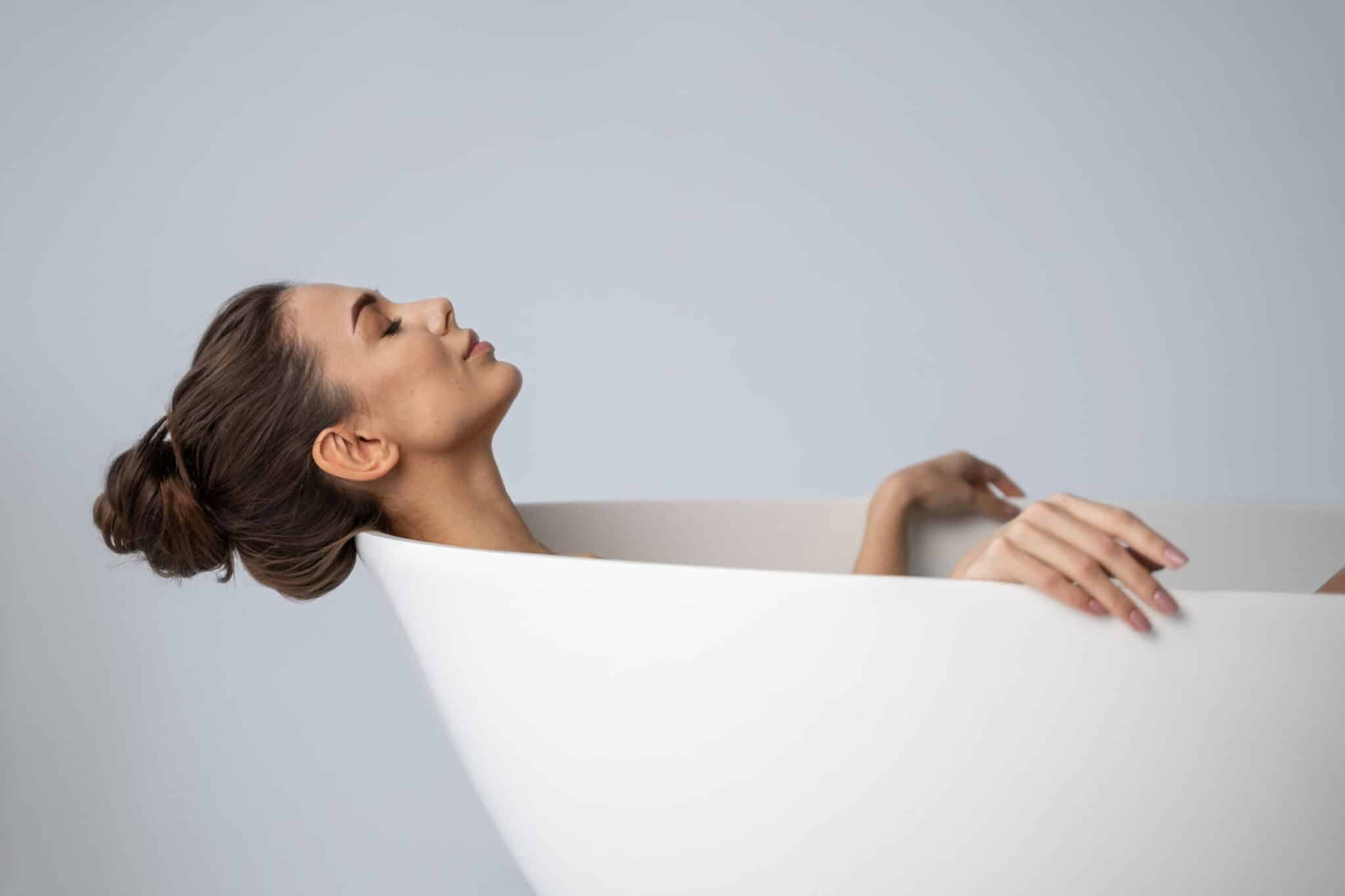Cold plunging has become the new fad in the health industry—but is it actually good for you if you experience epilepsy, arthritis, high blood pressure, and other health conditions? While it’s tempting to hop on the icy water immersion trend, ensuring it’s right for you and not aggravate any existing health conditions or introduce new risks is essential.
In this article, we’ll discuss what cold plunging is good for and what it isn’t. From epilepsy to pregnancy and mental health, frigid water immersion can provide many benefits or lead to dangerous health risks. Keep reading to discover whether cold plunges could benefit your current health condition—or if avoiding them altogether and exploring alternative options is better.
Is cold plunging good for you? Yes—and science backs it up.
Cold plunging provides several benefits to individuals willing to brave the frigid temperatures. Plunging activates the parasympathetic nervous system, which signals the body to relax and de-stress. The cold water, although shocking to the system, encourages your body to produce adrenaline and additional stress hormones, which improve mental clarity and the ability to focus. Several health and wellness gurus, from Tony Robbins to Wim Hof, swear by cold plunging—and there’s a reason they make it part of their routine. In addition to improved mental health, cold plunging is also good for muscle recovery, improved circulation, reduced inflammation, and pain relief.
However, before taking the plunge, addressing your goals and current health is essential. Let’s examine common health conditions and whether cold plunging benefits them.
Is Cold Plunging Good For…
Epilepsy?
Cold plunging isn’t recommended for those with epilepsy or a history of seizures, as the frigid temperatures can trigger a seizure. If you’d like to try cold plunging, consult your doctor before doing so to know and understand the risks.
Instead of cold plunging, those with epilepsy should ensure you’re taking your medication (if applicable), drinking plenty of water, getting good sleep, eating a healthy diet, and reducing stress. Doing these things can help your epilepsy and reduce seizures instead of doing something potentially dangerous like cold plunging.
Arthritis?
Cold plunging can be a safe, good treatment for arthritis in addition to other healthy habits. Many with arthritis incorporate cold plunge sessions into their weekly routine, consistently experiencing less pain and inflammation from the icy water. A 2019 study found that rats who underwent cold therapy to a specific area of their bodies improved rheumatoid arthritis symptoms, including swelling and inflammation, which promises that humans can experience similar benefits from the frigid temperatures of cold plunges.
Combining cold plunges with saunas can be especially beneficial for those with arthritis. Hot and cold therapy helps relax stiff muscles, increase blood flow, and reduce inflammation—all of which can ease arthritis symptoms. If the freezing temperatures worsen the pain, get out immediately. It’s also important to consult a healthcare professional if you’re hesitant about cold plunging with arthritis. If you’re looking for relief and less tension in the body, cold plunging can be a significant next step for arthritis.
High Blood Pressure?
While cold plunging can be good for those with select cardiovascular conditions, it’s unsafe or recommended for those with high blood pressure. The sudden temperature change of cold plunges triggers a “cold shock,” which immediately raises the heart rate and blood pressure. This can be dangerous for those with already high blood pressure, so it’s best to avoid cold plunging or consult a doctor before doing so.
Alternatives like mildly cold showers can be a solid start for those with high blood pressure, but ensure you consult with a healthcare professional beforehand. Other lifestyle changes, including a healthy diet, regular movement, and maintaining a healthy weight, can also help with high blood pressure.
Mental Health?
Cold plunges are extremely good for mental health, and many struggling with depression, stress, and anxiety incorporate icy baths into their routine. One study of a 24-year-old showed that consistent cold water swimming treated her depression. After a year of regular cold water swimming, the patient was depression-free and off medication altogether. Another study of 33 healthy adults (who’ve never tried cold plunging) studied their reactions to cold-water immersion directly after a session. They found that the swimmers reported a boost in positive emotions and decreased negative ones as a direct result of cold-water immersion. Furthermore, the participants felt more attentive, alert, and inspired and less nervous and stressed after the icy bath.
Why are cold plunges so effective for mental health? There are a few reasons:
- Cold plunges help the body release endorphins, which are natural mood boosters that help lower stress hormones like cortisol. Long-term, consistent cold plunges can lead to a constant release of endorphins, resulting in a better mood and a more present attitude.
- Cold plunges build resilience by training your mind and body to adapt rather than avoid discomfort or challenging circumstances (like immersing yourself in icy water). In turn, this can result in your ability to deal with stressful circumstances or heavy situations in a better, more empowered way.
- Cold plunges can improve sleep by lowering your body temperature before bed. This can enhance the quality of sleep and reduce stress before hopping into bed, which is something those with mental health issues struggle with.
Weight Loss?
While cold plunging can be beneficial in addition to your regular workout routine, it shouldn’t be the sole method you use for weight loss. Cold plunging triggers a response known as “cold thermogenesis,” which involves the body burning calories to generate heat and maintain your normal body temperature. While this process may contribute to burning some calories, the actual impact on weight loss is modest. Instead, we recommend daily movement, a healthy diet, and cold plunging for their overall health benefits—not just for weight loss.
- Read our blog about cold plunging and weight loss to learn how it works and what you can do for lasting results.
Pregnancy?
Cold plunges can be good for pregnancy, but doing it safely and in partnership with a healthcare professional is crucial. The cold shock response, which elevates the heart rate and blood pressure, can be dramatically more intense during pregnancy, which could impact fetal development. Before engaging in cold plunging, pregnant women should consult with their doctor to ensure it’s safe for them. If you’d like to take a more gentle approach, cold showers or lukewarm water swimming can be great alternatives to cold plunges.
If your doctor okays it, cold plunge with safety in mind. When entering the waters, listen to your body. If it becomes uncomfortable or cold, exit immediately and dry off. Additionally, slowly enter the frigid water rather than jump right in to properly acclimate your body to icy temperatures. Limit exposure to less than 5 minutes at a time and engage in cold plunging no more than once a week while pregnant. Cold plunging while pregnant can provide benefits but also comes with a list of risks, so consult with your healthcare provider before participating in it to ensure your and your baby’s safety.
- Read our article on cold plunging while pregnant to ensure a safe, icy water immersion experience.
Autoimmune Disease?
Cold plunging has been shown to be good for autoimmune diseases such as rheumatoid arthritis, multiple sclerosis, and lupus. Here’s how cold plunges help those with autoimmune diseases:
- Reducing Inflammation: Cold exposure can constrict blood vessels and reduce inflammatory responses. This cooling effect may help ease joint pain, swelling, and stiffness for individuals with autoimmune conditions—where inflammation often flares unnecessarily.
- Improving Circulation: When the body is exposed to cold water, blood flow is directed inward to protect vital organs. Once you warm up, circulation improves as blood rushes back to the skin and extremities. This improved blood flow can support detoxification and better delivery of nutrients to tissues affected by autoimmune responses.
- Enhancing Immunity: Cold plunging has been shown to stimulate the production of white blood cells, which are key players in immune system regulation. While autoimmune conditions involve an overactive immune response, balancing and strengthening immune function may help regulate how the body responds to perceived threats.
- Boosting Norepinephrine: Cold exposure triggers the release of norepinephrine, a neurotransmitter and hormone that helps regulate mood, energy, focus, and inflammation. For people with autoimmune diseases who often struggle with fatigue or brain fog, this boost can enhance mental clarity and support better stress resilience.
The Flu?
Cold plunging while sick, especially for those with flu or cold-like symptoms, isn’t recommended as it can cause additional stress to the body. If your immune system is already compromised, a cold plunge session could worsen it, so it’s best to wait until you’re feeling better to dip into the icy waters.
If your sickness is affecting your respiratory system, like the flu, it’s recommended to skip the cold plunge until you feel more at ease. Instead, take time to relax, drink fluids, and listen to your body.
Is cold plunging good for your health condition? If yes, try it out at home with Qontrast.
After reading, if you’ve discovered that cold plunging could benefit your current health, it might be time to try the trend for yourself—and you can do it from the comfort of your own home with Qontrast. We’re a Utah-based sauna and cold plunge dealer that provides customizable tubs unique to your home, health goals, and aesthetic preferences. Whether you’d like to attach our coldflow system to an existing tub or buy a state-of-the-art cold plunge tub, we’ve got you covered with our 5-star products.
Experience the powerful benefits of cold plunging—by investing in both your health and our trusted products. Contact us to schedule a showroom visit and start creating your own health-forward cold plunge tub.


